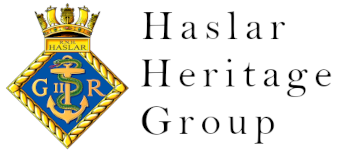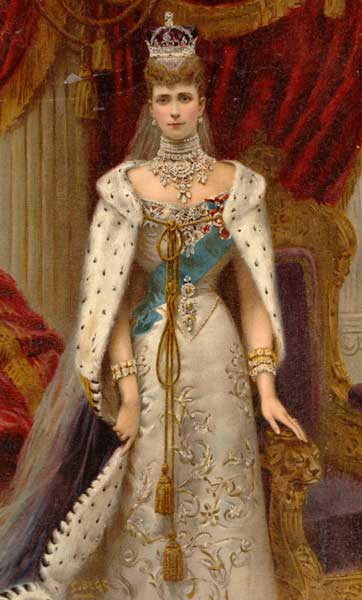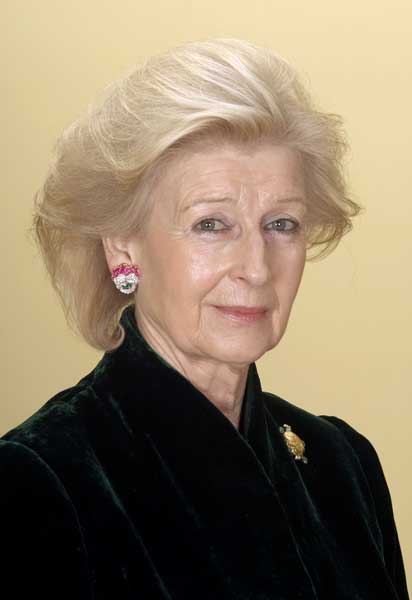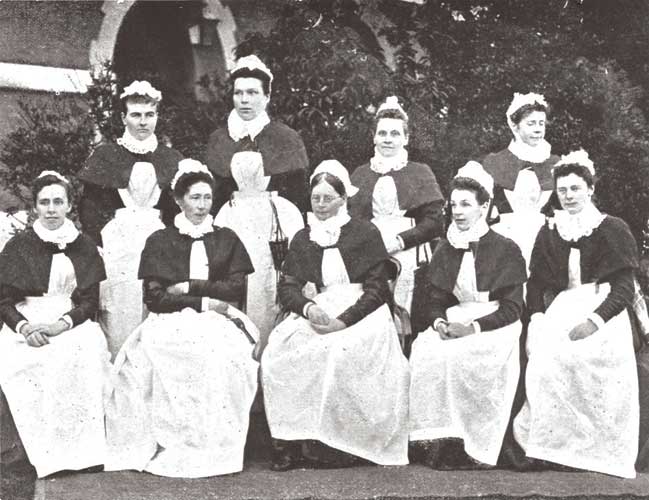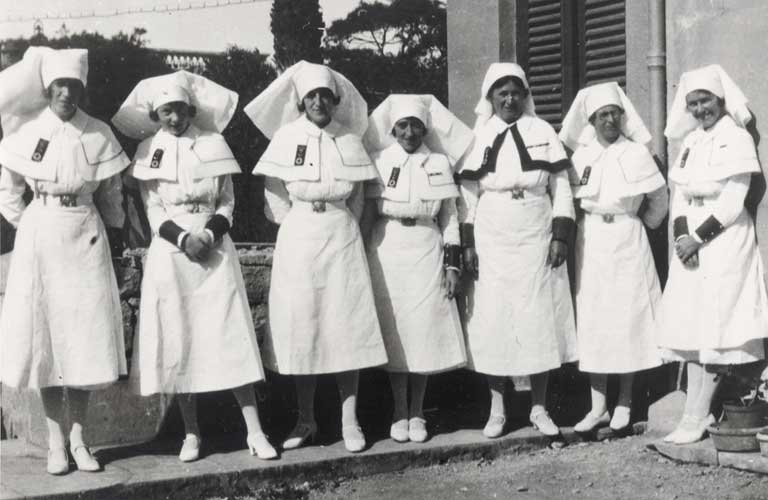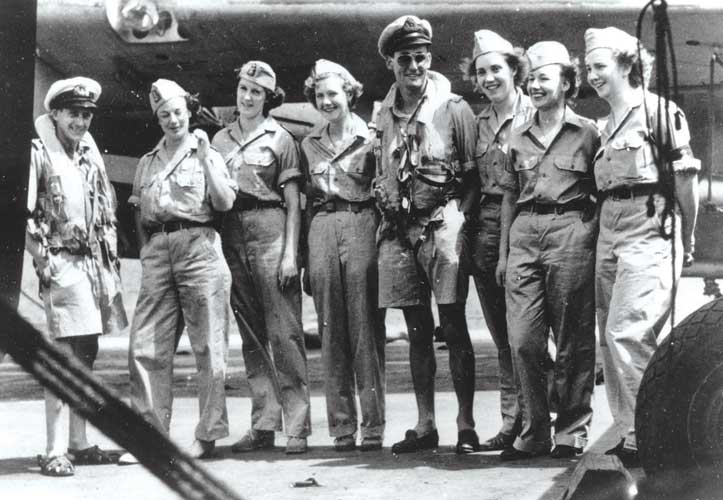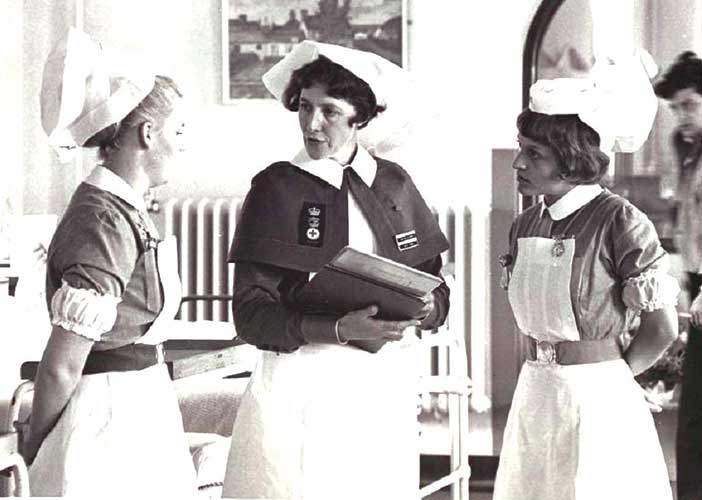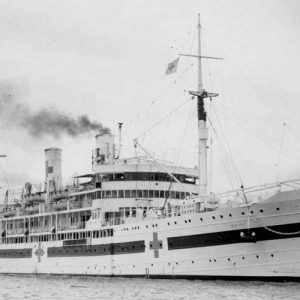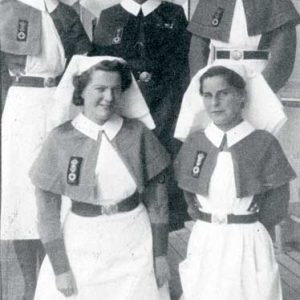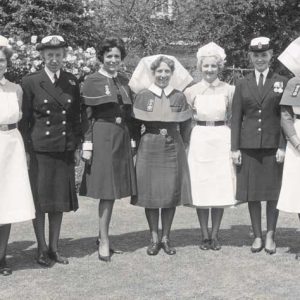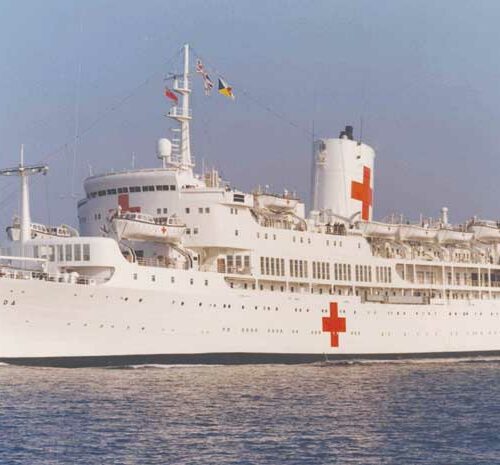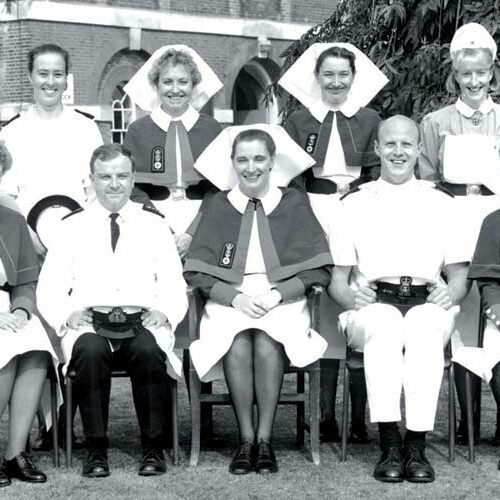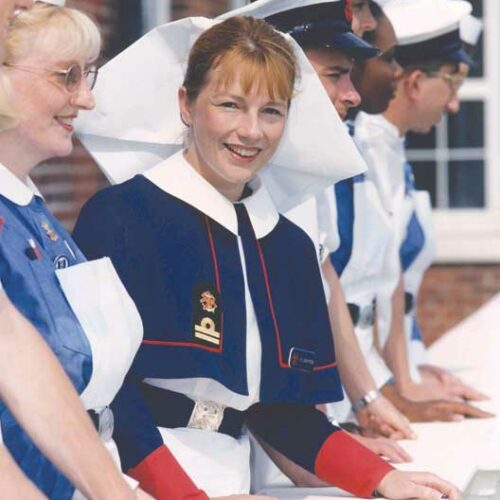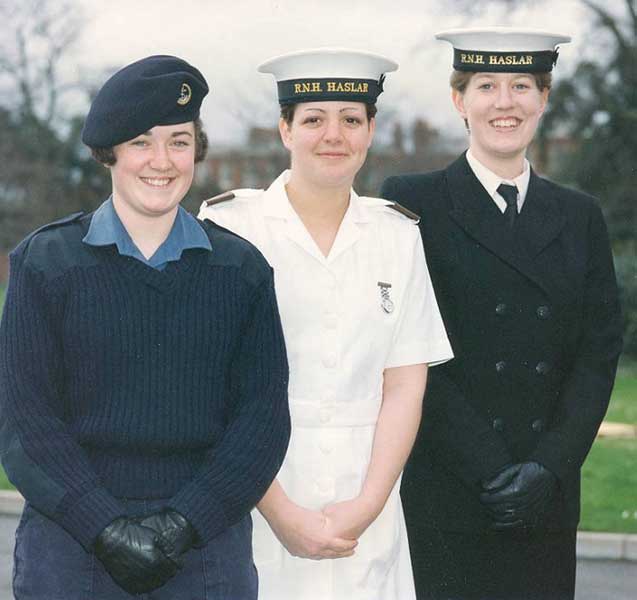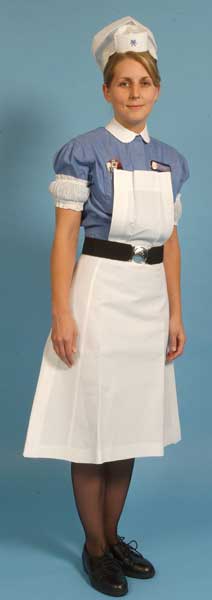QARNNS
In 1854 during the Crimean War, the Board of Admiralty sent Mrs Eliza Mackenzie to the Naval Hospital at Therapia. Mrs Mackenzie was accompanied by her clergyman husband and six “trained” nurses. The nurses had undergone a minimum of six weeks experience in a civilian hospital.
Although Mrs Mackenzie and her staff had proved trained nurses could improve standards of patient care in Naval Hospitals, it was not until 1884 that the Naval Nursing Service was formed and the first Nursing Sisters were appointed to the Royal Naval Hospitals at Haslar and Plymouth. Not only were improvements noted in the care of the patients but also in the training and performance of the Royal Navy Sick Berth Attendants. The first naval Sisters served on board SS MALACCA during the Benin Expedition to West Africa.
Queen Alexandra, wife of King Edward VII, wrote in 1901 to the First Lord of the Admiralty, saying it was her “great wish” to have the “Navy Nursing Department also under my special charge”. This proposal was enthusiastically received and on 10 November 1902, the first regulations for Queen Alexandra’s Royal Naval Nursing Service (QARNNS) were published.
During the First World War, Reserve Sisters and Lady Probationers and ladies from the Voluntary Aid Detachment (VADs) augmented the Service Nurses, releasing the Sick Berth Staff for sea duties. QARNNS Sisters served in Hospital Ships and some were lost at sea due to enemy action. Caring for severely wounded patients in a ship rolling in rough seas was found to be extremely difficult and exhausting.
On the death of Queen Alexandra in 1925, HM Queen Mary became Patron of QARNNS.
Lessons learned during the Falklands Conflict were incorporated into both the naval and professional training of QARNNS and led to personnel undertaking their initial training alongside their Royal Navy colleagues.
Currently, QARNNS personnel are on active service wherever UK Naval forces and tri-service medical staff are deployed.
